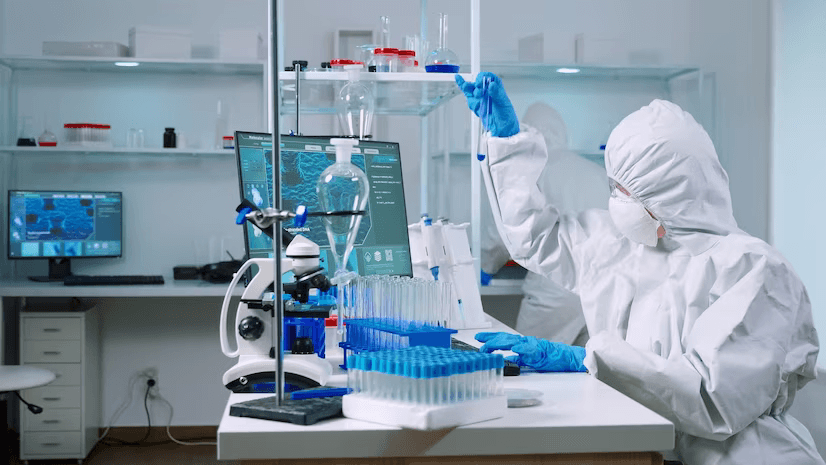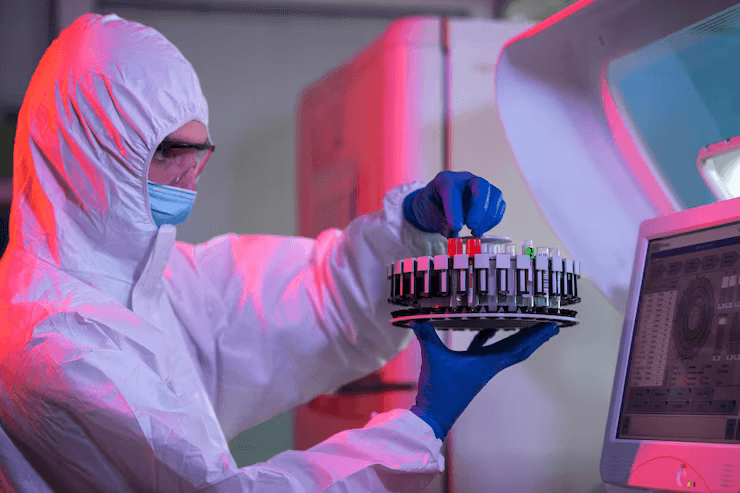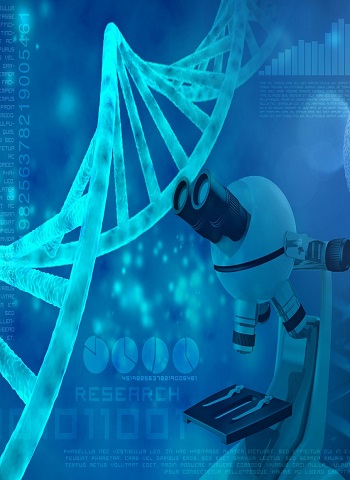In the vast landscape of scientific research and medical progress, antibodies stand as crucial pillars. These remarkable molecules possess the unique ability to identify and neutralize harmful invaders like viruses and bacteria. However, the production of these antibodies demands meticulous attention to detail and rigorous quality control measures to guarantee dependable and specific outcomes.
In this blog post, we will delve deep into the essential facets of quality control in antibody production, shedding light on the guidelines and practices that not only ensure the accuracy of results but also maintain the integrity of the entire process.
Unveiling the Importance of Antibodies
Before we embark on the journey of understanding quality control intricacies, it’s vital to grasp the profound significance of antibodies in both research and medical applications. Immunoglobulins, more commonly known as antibodies, are Y-shaped proteins manufactured by the immune system.
These remarkable proteins possess the remarkable capability to recognize and neutralize foreign agents that threaten our health, thereby acting as fundamental tools in a diverse array of fields, spanning diagnostics, therapeutics, and fundamental research.
Pinnacle of Consistency: Ensuring Batch-to-Batch Uniformity
Consistency emerges as a fundamental cornerstone in the realm of dependable antibody production. Researchers and manufacturers must strive to achieve uniform results across various batches of antibodies. The rationale is simple: any deviation in the production process can potentially lead to unreliable experimental outcomes.
Quality control initiates at the inception stages of antibody generation. The process entails an array of intricate steps, from meticulously selecting the suitable host organism to optimizing growth conditions.
Each step demands careful monitoring and exhaustive documentation to ensure that antibodies produced in different batches exhibit comparable properties. This concerted effort not only minimizes variability but also bolsters the credibility of research outcomes, reinforcing the foundation of scientific progress.
Navigating the Terrain of Antibody Specificity
One of the paramount concerns encountered in antibody production is specificity – the antibody’s capacity to exclusively target its designated antigen. The repercussions of false positives and cross-reactivity are profound, potentially leading to skewed results and the misinterpretation of critical data. To address this challenge, comprehensive validation of antibody specificity becomes an imperative.
A weapon of techniques, including Western blotting and immunohistochemistry, assumes center stage in the validation of antibody specificity. These assays necessitate utilizing the antibody to identify its intended antigen within a meticulously controlled experimental framework. Moreover, the inclusion of negative controls, wherein the antibody is employed on samples devoid of the target antigen, aids in confirming the absence of non-specific binding.

The Crucial Role of Rigorous Testing and Characterization
Quality control in antibody production encompasses rigorous testing and comprehensive characterization of the final product. This multifaceted evaluation encompasses critical parameters such as antibody concentration, purity, and stability. Techniques like enzyme-linked immunosorbent assays (ELISA) and gel electrophoresis find prominence in quantifying antibody concentration and verifying its structural integrity.
Delving deeper, stability studies hold immense significance in determining the antibody’s resilience over time. The conditions under which antibodies are stored, encompassing factors like temperature and pH, wield considerable influence over their functionality. By subjecting antibodies to a battery of stress conditions and meticulously analyzing their performance, researchers can ensure that these antibodies remain steadfast tools throughout their designated shelf life.
Fostering Collaboration and Transparency
Within the realm of antibody production, collaboration and transparency emerge as linchpins. The trifecta of researchers, manufacturers, and end-users must seamlessly exchange information and insights, collectively contributing to the enhancement of antibody quality.
Initiatives such as the Antibody Registry stand as vibrant examples, offering a platform for researchers to submit and access antibody validation data. This fosters a synergistic and community-driven approach to quality control, ushering in a new era of scientific cooperation.
Culmination: Ensuring the Reliability of Scientific Advancements
Quality control in antibody production extends beyond being a mere procedural requirement; it evolves into an unwavering commitment to the authenticity of scientific research and medical breakthroughs.
By meticulously adhering to stringent guidelines, robustly validating specificity, and subjecting antibodies to exhaustive testing, researchers and manufacturers play a pivotal role in enhancing the reliability and credibility of antibody-based experiments and applications.
As we continue to unravel the intricate tapestry of diseases and unlock novel therapeutic avenues, the assurance of dependable and specific antibodies remains an indispensable facet. The symphony of research and quality control harmoniously orchestrates a future where scientific advancements are built upon the rock-solid foundation of precision and accuracy.
Elevating Antibody Production to an Art Form
The journey of antibody production doesn’t merely involve scientific protocols; it’s an art form that requires dedication, attention to detail, and an unwavering commitment to excellence.
As we traverse the landscape of quality control, we uncover the profound impacts that rigorous measures can have on the outcomes of experiments and the advancements of medical science.
Harnessing Technological Advancements
In an era characterized by technological marvels, the landscape of quality control in antibody production is also benefiting from cutting-edge tools. Automation and high-throughput techniques are revolutionizing the way antibodies are generated and validated.
These advancements not only streamline the process but also enhance accuracy, enabling researchers to focus on the intricate aspects of antibody specificity and performance.
Emerging Challenges and Innovative Solutions
The realm of antibody production is not immune to challenges. The demand for high-quality antibodies continues to surge, and researchers are exploring novel avenues to meet these requirements.
From recombinant antibodies to synthetic biology approaches, innovation is rife in the quest for reliable and specific antibodies. Moreover, the integration of AI and machine learning in quality control processes is paving the way for data-driven decisions, further elevating the credibility of antibody-based research.
A Symphony of Quality Control
Much like a symphony that harmonizes various instruments, quality control orchestrates the elements of antibody production into a cohesive masterpiece. The collaboration between researchers, manufacturers, and end-users resonates through every step, from selecting the host organism to rigorously characterizing the final product.
With each note played in the symphony of quality control, the assurance of reliable and specific antibodies grows stronger.
Bridging Science and Impact
As we reflect on the intricate dance between antibody production and quality control, we recognize that this convergence bridges the gap between scientific inquiry and real-world impact.
The antibodies born from meticulous processes become tools that aid in unraveling disease mechanisms, developing targeted therapies, and advancing our understanding of the biological world. Quality control transforms scientific potential into tangible results that shape the course of medicine and research.
Conclusion: The Legacy of Excellence
In conclusion, the journey through quality control in antibody production is a testament to human ingenuity and commitment to excellence. It’s a journey that doesn’t just involve laboratories and procedures; it encompasses a shared passion for advancing knowledge and improving human lives.
With unwavering dedication, scientists and researchers continue to refine their practices, ensuring that every antibody produced is a beacon of reliability and specificity.
As the world of science hurtles forward, the legacy of quality control in antibody production stands as a foundation that withstands the test of time. It’s a legacy that safeguards the integrity of research, amplifies the impact of medical advancements, and propels humanity toward a future where the mysteries of biology are unraveled and conquered, one antibody at a time.


